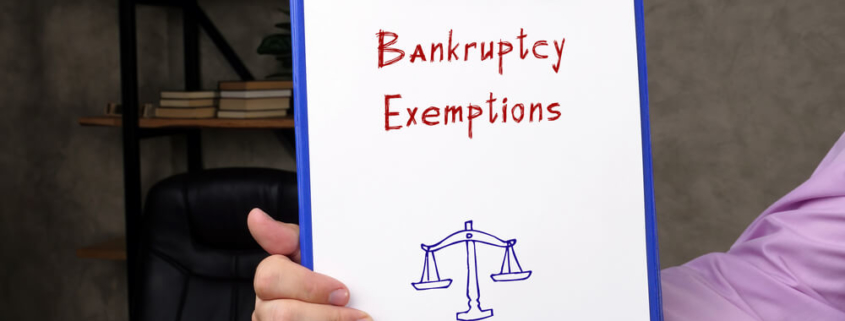Bankruptcy Exemptions Ensure You Don’t Have To Start From Scratch
Ina Garten is one of the most popular celebrity chefs in America. People love her recipes, and her positive attitude, which is on full display on Barefoot Contessa, her show on the Food Network. One of the things she has become known for is noting “store-bought is fine” if you can’t, or don’t want, to make a particular ingredient from scratch.
Making things from scratch can be hard. Ina understands that, so she gives her viewers the okay to make things easier on themselves. Her reassurance that store-bought is fine makes even the most complicated dishes seem more approachable.
In a way, lawmakers have done the same thing with our country’s bankruptcy laws. While debtors filing under Chapter 7 of the bankruptcy code are expected to sell most of their assets and use the proceeds to pay off creditors, the law exempts some property from being turned over to creditors. Not being required to start over from scratch gives filers a better chance of success, and makes the whole process seem more approachable.
Exemptions in Alabama
Each state decides what property it will allow people who file for bankruptcy to exempt from being claimed by creditors. Here is a partial list of common Alabama exemptions:
- Homestead Exemption — Property owners can exempt $15,500 of the value of a property used as the filer’s main residence. Married couples filing together who are both listed as owners of the property can double this exemption and preserve $31,000. A certain amount of land can also be exempted if it is the site of a movable permanent residence like a mobile home.
- Wildcard Exemption — Alabama filers get $7,750 to use to exempt whatever property they want of that value. Many people use this exemption to keep their car.
- Personal Property — Filers are allowed to keep clothing, family portraits, pictures, and books for personal or family use.
- Tools of the Trade — If you have valuable tools that you use to earn a living, like auto tools if you are an auto mechanic, you can usually exempt them. You can also hold on to work clothes.
- Retirement Accounts & Benefits — Most retirement accounts can be exempted.
One of the reasons it is important to work with an experienced bankruptcy attorney like those here at Padgett & Robertson is that we know how to maximize these and other exemptions so our clients can hold on to as many assets as possible.
In a way, tapping into our expertise is another “store-bought is fine” moment in the bankruptcy process. Hiring us is a shortcut that allows you to focus on moving forward instead of worrying about figuring out how the bankruptcy process works all on your own.
If you are ready for the kind of clean start that only bankruptcy can provide, but you don’t want to rebuild your life from scratch, please reach out to schedule a free meeting with the experienced Padgett & Robertson team. We can discuss what will happen to specific assets you own and help you find a recipe for post-bankruptcy success.





Leave a Reply
Want to join the discussion?Feel free to contribute!